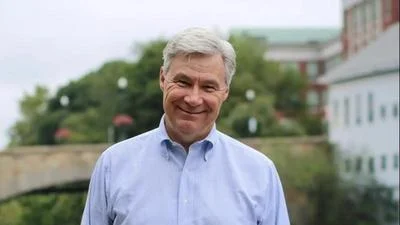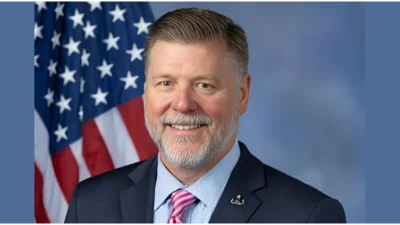Congressman Mike Quigley (D-IL), Chair of the Financial Services and General Government Appropriations Subcommittee, delivered the following remarks at the Subcommittee's IRS oversight hearing with the Treasury Inspector General for Tax Administration:
I want to thank you all for being here and especially thank our witness, Mr. Russell George, the Inspector General for Tax Administration along with two of his deputies, James Jackson and Michael McKenney. We appreciate you taking the time to be with us and to share your insights on the Internal Revenue Service (IRS), especially since the IRS is the largest agency funded within our bill.
TIGTA has consistently provided Congress with top notch reports and audits and we want to acknowledge you and your team for your responsiveness to Congress and their efforts to fight fraud, waste, and abuse at the IRS.
I look forward to hearing from you about the status of the fiscal year 2019 filing season in which the IRS had to implement 119 new tax provisions that affected 57 systems and more than 500 forms.
Coupled with the changes to the Tax Cuts and Jobs Act, the Federal Government experienced the longest shut down in history, which delayed hiring, training, and system updates needed for a successful filing season. With all this change, did taxpayers get their refunds on time? Was the IRS able to respond to customer service requests timely and adequately? And what improvements are needed for the upcoming filing season?
Closing the tax gap is of special importance to this Committee. As a result of declining staffing levels at the IRS, audits have dropped nearly 40 percent since 2011 and the chance of a taxpayer being audited is less than one percent. However, audits for lower income individuals are on the rise and resources previously dedicated to collect unpaid taxes from wealthy non-filers have been slashed.
Increasing audits for the wealthy and the assessment rate for wealthy non-filers are commonsense approaches to reduce the tax gap, so it baffles me that the IRS has employed a strategy that does the opposite. I’m eager to learn more about this troubling trend and why lower income populations are being targeted for IRS audits.
Equally important to me is TIGTA’s involvement in discussions with the IRS, Department of Justice, or Treasury related to Congress’s request for the President’s taxes. I’m also interested in the IRS’s oversight of the Presidential Audit program that reviews a sitting President’s annual tax return. Finally, I’d like to get your take on how the new limitation on state and local tax deductions was administered by the IRS.
With the passing of the Taxpayer First Act, fiscal year 2020 will bring further change to the IRS. I’m interested in your thoughts on how these new provisions which concentrate heavily on customer service will improve the taxpayers’ experience and reshape the organization. In addition, the fiscal year 2020 budget request did not include funds for its implementation. I’m hoping that you can clarify the resources needed to implement this sweeping legislation.
Since fiscal year 2011 the IRS workforce has declined by 19 percent and the Enforcement function specifically is down by 27 percent. Compounding the concerns with this downward trend, the Commissioner has stated that about 45 percent of the IRS’s total workforce will be eligible to retire within the next two years. The IRS is facing critical skills gaps and I’m eager to hear if the agency has a strategy to retain valued employees and recruit skilled personnel.
After years of IRS budget cuts, the agency has struggled to modernize its legacy IT systems, jeopardizing taxpayers’ personal identification and hampering efficient services. All of this has taken a toll on the agency and we need to reverse the trend of underfunding critical IRS systems. I hope you can share more details about IRS’s modernization plan and how it will benefit U.S. taxpayers.
Again, I want to thank you for being with us this morning to share your expertise on how we can improve the taxpayer experience and IRS operations.
I would now like to recognize Mr. Graves, the Ranking Member of this Subcommittee, for any opening statements he would like to make.
Source: U.S. Department of HCA









